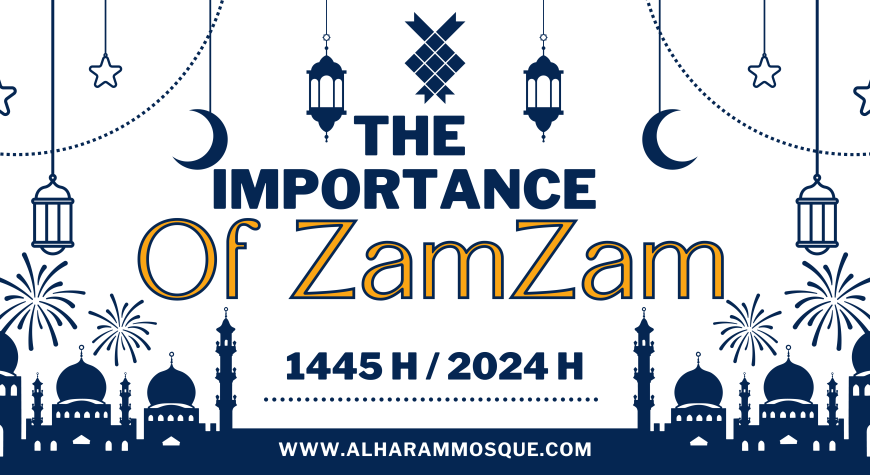The Importance of Zamzam Water

Introduction:
In the heart of the holy city of Mecca, within the sacred precincts of Al Haram Mosque, lies a well that has quenched the thirst of millions of pilgrims for over four millennia. This well, known as Zamzam, is a source of water that holds a special place in the hearts of Muslims around the world. Revered for its spiritual significance and remarkable properties, Zamzam water is considered a divine blessing and a symbol of God’s providence. In this blog, we will explore the profound importance of Zamzam water in Islamic tradition and its enduring relevance in the lives of Muslims today.
The Divine Origin of Zamzam:
The story of Zamzam begins with the Prophet Ibrahim (Abraham) and his family. According to Islamic tradition, Allah commanded Ibrahim to leave his wife, Hajar (Hagar), and their infant son, Ismail (Ishmael), in the barren valley of Mecca. When their provisions ran out, Hajar desperately searched for water, running between the hills of Safa and Marwah seven times. In her moment of despair, Allah sent the Angel Jibreel (Gabriel) to strike the ground, and the blessed water of Zamzam sprang forth.
Spiritual Significance
A Gift from Allah
Zamzam water is a tangible manifestation of Allah’s mercy and care. It symbolizes divine intervention and the fulfillment of prayers. The story of Hajar’s unwavering faith and perseverance serves as an inspiration for Muslims to trust in Allah’s wisdom and provision, even in the face of seemingly insurmountable challenges.
A Pillar of Hajj and Umrah
Drinking Zamzam water is an integral part of the pilgrimage rituals of Hajj and Umrah. Pilgrims drink from the well to quench their physical thirst and seek spiritual rejuvenation. The act of drinking Zamzam is often accompanied by supplications, as it is believed that prayers made while drinking this blessed water are particularly potent.
Scientific Perspective:
While the spiritual significance of Zamzam water is paramount, its unique composition has also intrigued scientists. Zamzam water is known for its high mineral content, including calcium, magnesium, and fluoride. Unlike other groundwater sources, it is remarkably free from contamination, maintaining its purity for thousands of years. Some studies have suggested that these properties may contribute to its reputed health benefits.
Zamzam in Contemporary Life
A Source of Unity
Zamzam water serves as a unifying element for Muslims worldwide. Whether consumed during pilgrimage or shared with loved ones upon returning home, Zamzam water reinforces a sense of community and shared faith. It is a reminder of the collective bond that ties Muslims together, transcending geographical and cultural boundaries.
A Symbol of Gratitude:
Muslims express their gratitude for Zamzam water through various acts of charity and worship. Many choose to donate to the upkeep of Al Haram Mosque and support initiatives that ensure the well remains accessible to all pilgrims. Additionally, the distribution of Zamzam water as a gift is a common practice, symbolizing the sharing of blessings and the spirit of generosity.
Conclusion :
Zamzam water is much more than a natural resource; it is a profound symbol of faith, resilience, and divine grace. Its historical and spiritual significance continues to inspire and uplift Muslims around the world. As we reflect on the miracle of Zamzam, we are reminded of the enduring power of faith and the infinite mercy of Allah. May we always cherish this blessed water and the lessons it imparts, nurturing our souls and strengthening our connection to the Almighty.

